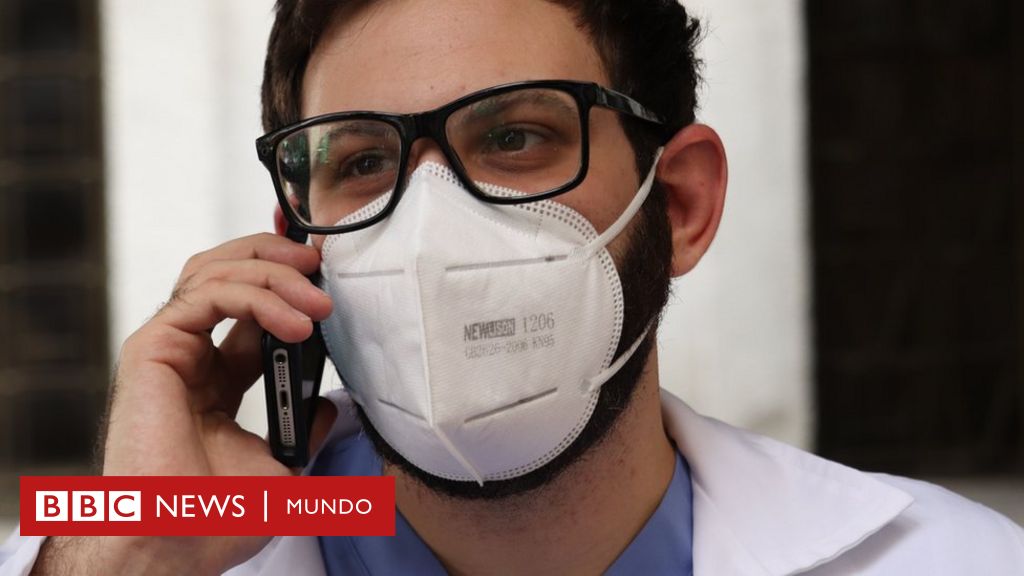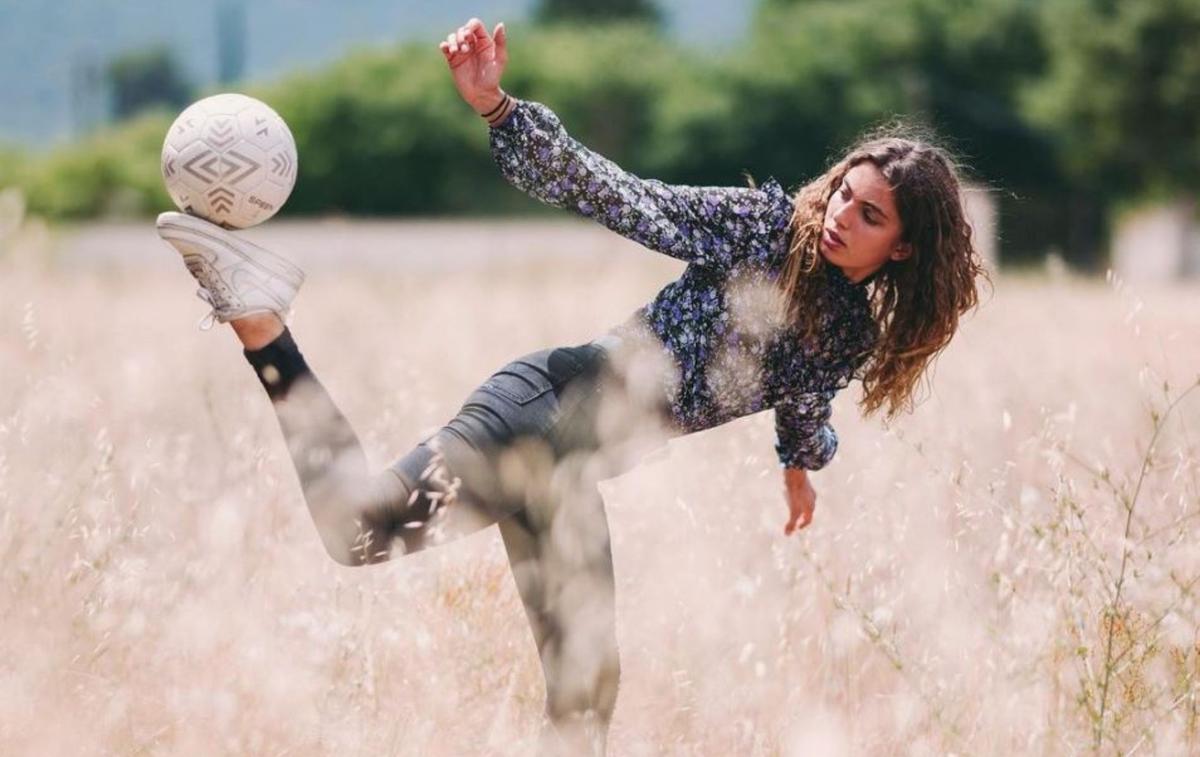- Nicole Kolster
- Special for BBC World in Caracas
—
Image source, Nicole Kolster
—
Dr. Ronald Nabki takes advantage of the breaks in his shift to answer the calls he takes as a volunteer.
–
When Ronald Nabki received his medical degree a little over a year ago, Venezuela began its confinement due to the coronavirus pandemic. Since then he has not stopped working between shifts at the hospital and the calls he takes as a volunteer on a helpline that is now overwhelmed.
–
Nabki, 28, is one of the volunteer doctors who attends SOS Calls, an emergency line created by the Faculty of Medicine of the Central University of Venezuela (UCV), the most important in the country and where he graduated from, to care for people who suspect they are sick.
–
Venezuela is going through the worst moment of the pandemic before the second wave that the authorities describe as “more virulent” and that link two Brazilian variants.
–
Hospitals and clinics are overwhelmed and “the flow of calls for covid-19 is quite high,” Marledys Machuca, another of the 18 doctors volunteers program participants
–
“I can see 50, 60, 70 patients every day, and sometimes it gets out of control,” he says. “There is a lot of fear in the patients who call, they think they are going to die or get complicated.”
–
“The line is saturated”, confirms Nabki, who has redoubled shifts because “it is a lot of work” and does not want “calls to be lost.”
–
The day he spoke with BBC Mundo, he answered about 60 calls in five hours through a mechanism that redirects them to his cell phone.
–
“And there would have been more … The problem is the telephone connection” of people who call from the province, where there are communication failures, he adds.
–
“There is no quota”
Many patients do not go to the hospital due to collapse and fear of worsening with other cases, so calls have become a possible solution for help and advice.
–
Image source, Nicole Kolster
—
The volunteers’ phone line multiplied the calls in recent weeks.
–
Venezuela adds more than 1.900 deaths and more of 183.000 cases, according to reports from the president’s government Nicolas Maduro that NGOs question because they consider that there is a high underreporting for lack of evidence.
–
Maduro has asked people to go “immediately” to the hospital at the slightest symptom.
–
“Not wanting direct medical attention is a mistake and it pays dearly,” he recently questioned. “They almost die at the health centers, they are cared for at home and are complicated by not going immediately to the centers.”
–
But finding a bed in a public hospital, and even in a private clinic, with prices that are often unpayable, is increasingly difficult.
–
Social networks have been filled with GoFundMe campaigns to ask for financial help to finance treatments and hospital stays.
–
And SOS Calls becomes almost the only option for many.
–
According to BBC Mundo, it is very difficult to communicate with the two lines opened by the Ministry of Health. When they attend, the advice in Caracas is to go to the Poliedro, an entertainment venue where a large patient care center has been installed.
–
In March, the UCV program received 7,148 calls, more than they received in December, January and February combined, according to its own records.
–
“It is very common for people to call who have visited hospitals without receiving care,” says Dr. Marledys Machuca.
–
What do you say to a caller with a case that you know requires hospitalization?
–
“It is impossible to know which hospital has space (places) at that time. One usually indicates the health centers near your home,” answers Machuca.
–
Image source, Nicole Kolster
—
The increase in calls reflects that the country is at the worst moment of the pandemic.
–
“The problem, as I work in hospitals, is that I know there is no space, there is no space at all,” says Dr. Nabki, who attends to patients by phone at any break during his shift.
–
“What I am telling you is that it is fortunate that one goes to a hospital or a clinic and at that moment a patient has been discharged and the room is free, vacant at that moment.
–
“It’s not like I can say to him: ‘Look, sir, go to that hospital and they are going to admit you.’ It’s a lie, there is no registry or anything for that to happen like that, unfortunately.”
–
Cause of death: covid?
Venezuela is going through a severe economic crisis and its hospitals have generally been without the necessary funding for years and with underpaid doctors. Many of them now practice in other countries in the region.
–
“We are not gifted at all, we have to reuse gowns, masks … Unfortunately there is not enough,” Carlos Pérez, 29, an internist and infectologist at two Venezuelan public hospitals, tells BBC Mundo.
–
“Every time a bed is vacated, another patient comes in,” he says. “We are collapsed.”
–
Pérez highlights the slowness with which PCR diagnostic tests are processed in the public sector. “We have had cases of patients who are hospitalized, discharged and there is still no report of the result of the patient’s covid test, and that influences the number of reported cases.”
–
Image source, Nicole Kolster
—
Another indicator of the moment Venezuela is going through is the high demand for medicinal oxygen.
–
And he adds: “If a patient does not have a PCR test that has confirmed the diagnosis and dies, that patient did not die of covid even if they have all the symptoms, and it is illegal to even fill out a death certificate that indicates covid.”
–
Other people who do not enter the statistics are patients who are cared for at home, very common in the face of the collapse of hospitals.
–
Wildejohn Azuaje, a photojournalist, chose, for example, to “receive care by video call” and not go to the hospital.
–
He isolated himself at home with his son and wife who have symptoms of the virus. “I’m worried, but we breathe well. I have my son locked in his room, my wife in ours, each in a locked room.”
–
Gabriela Achela says that she turned her grandmother’s room “into a hospital room” after trying to admit her to several centers without success.
–
Image source, Nicole Kolster
—
Up to US $ 30 it costs to recharge an oxygen cylinder.
–
She visited up to eight hospitals and clinics and “the answer has been that they do not have space to receive more patients with covid,” the 28-year-old girl in line to recharge the oxygen cylinders required by her 77-year-old grandmother tells BBC Mundo. years.
–
Each recharge costs US$30 and the old woman “that can last about eight hours”, so Achela has to go twice a day.
–
“You have never seen so many people here, so many queues, desperate people,” says Carlos Rodríguez, in charge of an oxygen distributor in western Caracas and who attends non-stop people who wake up on the sidewalk of the premises.
–
Due to the high demand, “right now there is no sale of cylinders or rent, what we do is recharge,” adds Rodríguez, who has been working a double shift for two months without a break.
–
–
Now you can receive notifications from BBC News Mundo. Download our app and activate them so you don’t miss our best content.
—

